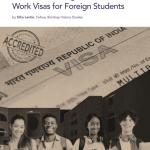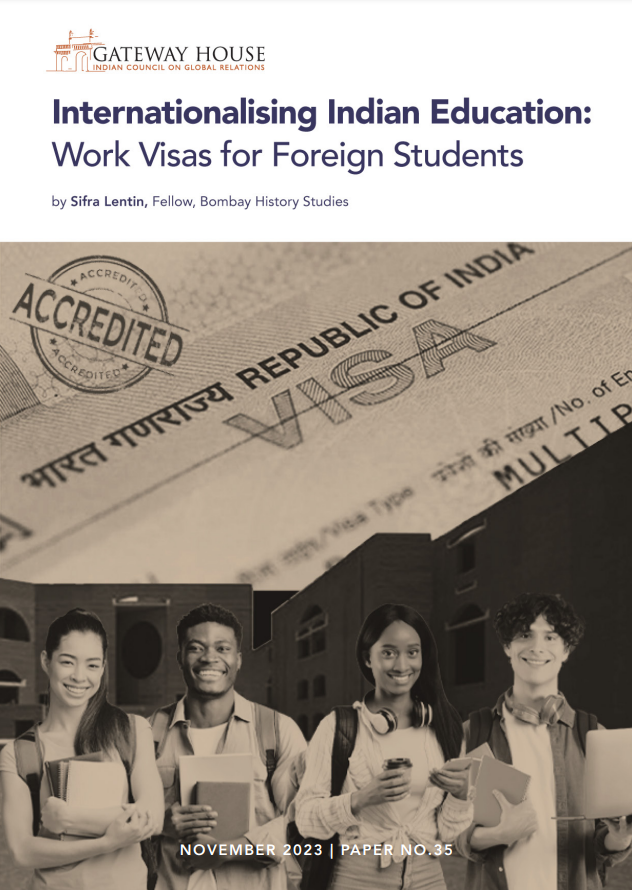This paper recommends amending India’s student visa policy to allow foreign students to work in India on paid internships while studying at Indian colleges and universities, and in jobs for pre-determined periods after they graduate. This modification to India’s ‘S’ Visa provisions would be an important step towards internationalising Indian higher education institutes (IHEIs) – a pivotal objective of India’s New Education Policy (NEP 2020), which advocates attracting more foreign students to study in Indian colleges but does not address changes in student visa rules, even though they would align India’s student visa practices with global norms.
The paper supports its argument with five key findings:
- First, authorising foreign students to work in India surely would attract many more than the estimated 50,000 foreign students currently studying in Indian colleges either at their own cost or on scholarships.
- Second, India’s accredited new private and regional or state universities and colleges would benefit greatly from an increase in overseas students. New Indian universities have been seeking to build culturally and globally diverse student bodies, enrich classrooms, expand student networks and bring in foreign-exchange revenues. Allowing foreign students to work during or immediately after their time on campus will support their pursuit of all these goals, in particular by attracting students from beyond India’s neighbourhood. The success of overseas Indian doctors and engineers in these countries will encourage students from developed countries to enrol in Indian institutions, and students from established source countries in Africa and South Asia will see the opportunity to get field experience in India as a key value addition to Indian degrees.
- Third, work visas for foreign students would be important for Indian companies that are internationalising. Through on-campus recruitment and hiring of foreign talent on Indian campuses and hiring alumni of Indian colleges and universities who return to their home countries, Indian companies should be able to develop a natural talent cohort that is culturally acclimatised to India.
- Fourth, alumni of Indian institutions of higher learning who return to their countries of origin can serve as a valuable “cultural bridge” between India and other countries.
- Finally, for India’s foreign policy, student work visas would reinforce an important plank of bilateral relations: reciprocity. An estimated 65% of Indian students who study abroad – 7,50,000 Indian students in 2022 – avail themselves of overseas work experience. Offering one-to-three-year work visas to foreign students who graduate from Indian universities can only strengthen India’s international relationships.
A student work visa policy can be implemented in a two-year phased and regulated manner. Such an implementation period will help all stakeholders – universities and colleges, companies, and ministries of education, external affairs, home, finance, and commerce – to develop and hone systems, processes, policy, regulations and coordination structures.
You can download the PDF version of this paper here.
Sifra Lentin is Fellow, Bombay History, Gateway House.
This paper was exclusively written for Gateway House: Indian Council on Global Relations. You can read exclusive content here.
Support our work here.
For interview requests with the authors, or for permission to republish, please contact outreach@gatewayhouse.in.
© Copyright 2022 Gateway House: Indian Council on Global Relations. All rights reserved. Any unauthorized copying or reproduction is strictly prohibited.



